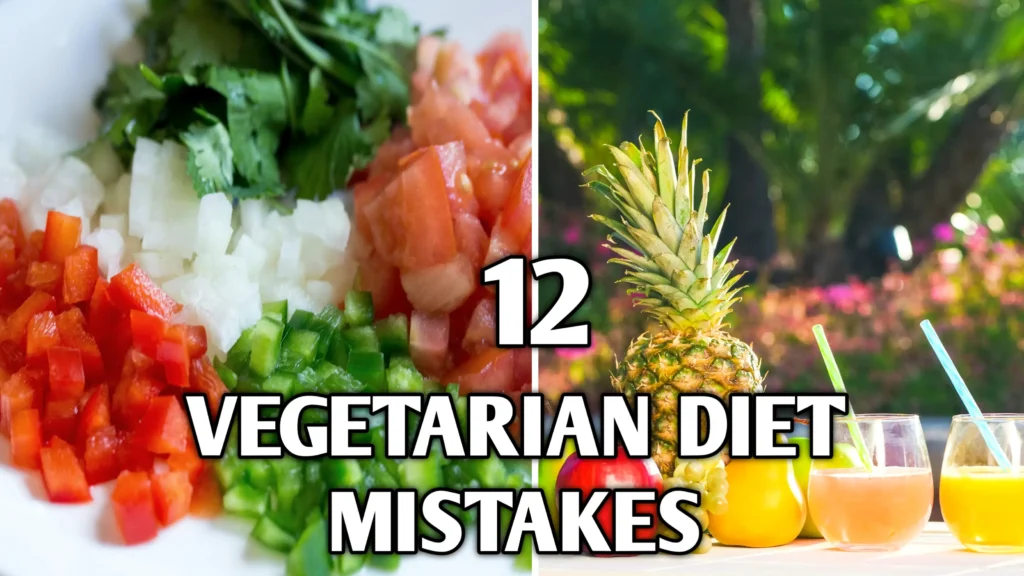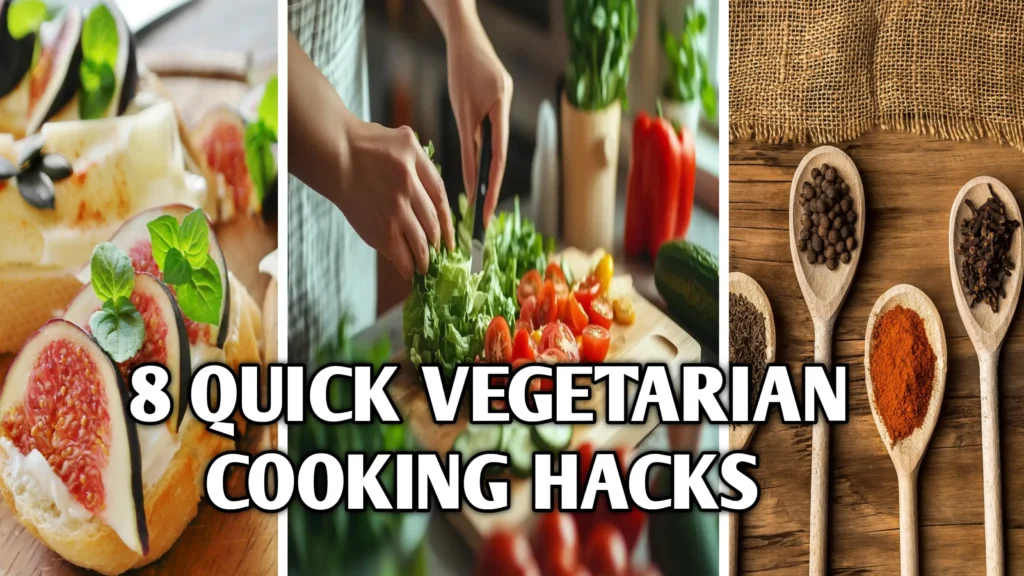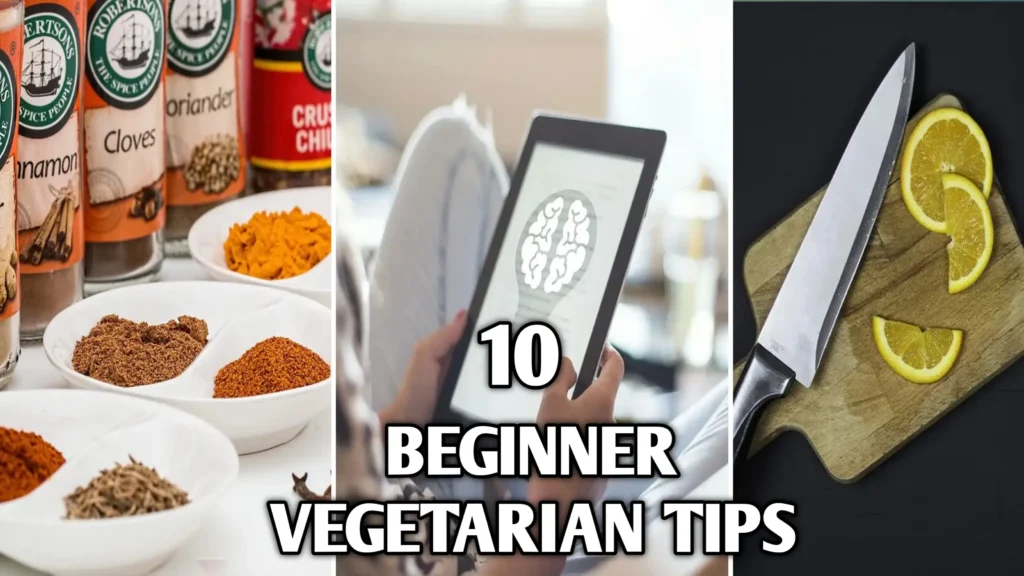
Welcome, Beginner Vegetarian Tips enthusiasts! If you’re taking your first steps into a fully vegetarian lifestyle (no eggs, no non-veg items), you’ve come to the right place. In this comprehensive guide, we’ll cover everything you need to know to make your vegetarian cooking journey both enjoyable and successful. Whether you’re searching for cooking tips for beginner vegetarians, wondering how to become vegetarian gradually, or looking for the easiest way to go vegetarian—this article is your one-stop resource. Read on to learn expert techniques, practical advice, and mouthwatering recipes designed with the beginner in mind. Let’s dive in and embrace a healthier, compassionate, and sustainable way of living! 😊
1. Embrace the Beginner Vegetarian Mindset

Starting your journey into vegetarian cooking begins with the right mindset. Adopting a fully vegetarian lifestyle can be both exciting and challenging, but with determination and the proper tips, you’ll soon find it natural and fun. Here’s how to begin:
Believe in Yourself and Your Choices
Transitioning to a vegetarian lifestyle is a personal choice that reflects your values and health goals. Remember that every great journey starts with a single step. Beginner Vegetarian Tips Embrace your decision with confidence, and remind yourself of the numerous benefits—environmental, ethical, and health-related.
Be Open to Learning
As a beginner, it’s important to stay curious. Experiment with new ingredients, learn from mistakes, and continually seek out vegetarian cooking for beginners advice. You might encounter challenges along the way, but each mistake is an opportunity to improve your skills.
Celebrate Small Wins 🎉
Every time you successfully prepare a vegetarian meal or master a new recipe, take a moment to celebrate.(Beginner Vegetarian Tips ) Whether it’s a perfectly tossed salad or a hearty lentil stew, recognizing these achievements will boost your confidence and keep you motivated.
🌱 Practical Tips For Starting a Vegetarian Lifestyle
If you’re thinking of going vegetarian and need practical, beginner-friendly advice, this article offers helpful guidance to make your transition smooth and sustainable.
Read the Full Article on Lifehack2. Build a Strong Vegetarian Pantry
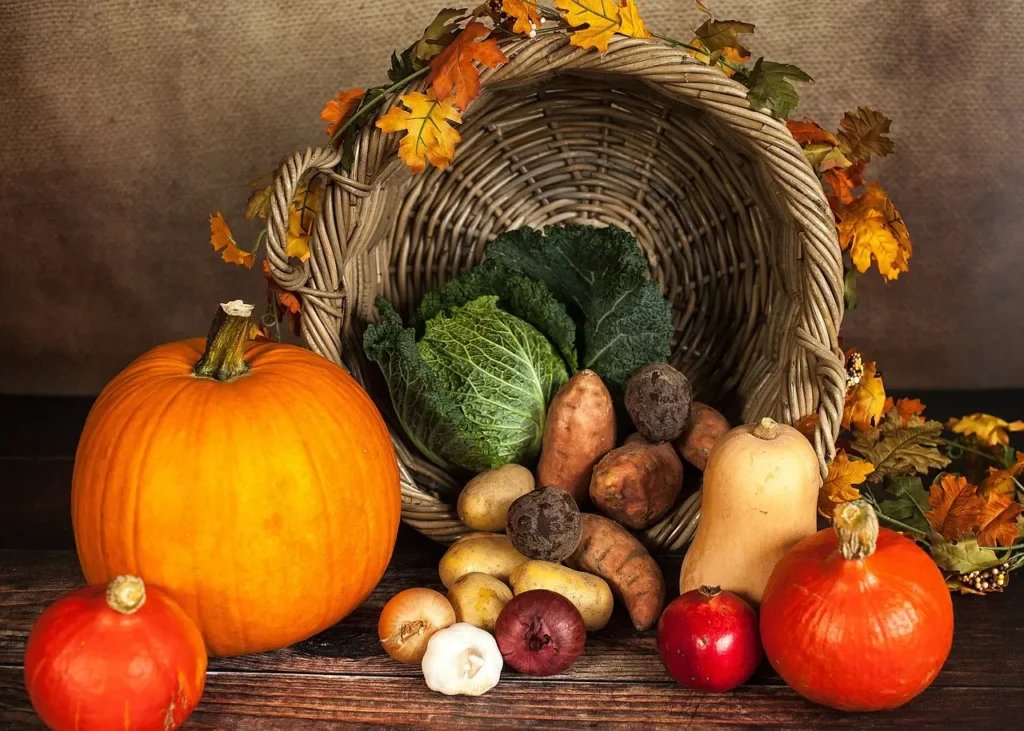
A well-stocked pantry is the backbone of every successful vegetarian kitchen. (Beginner Vegetarian Tips ) As a beginner, creating a reliable inventory of ingredients ensures you’re always prepared to whip up nutritious meals without last-minute stress.
Essential Staples for Every Vegetarian Kitchen
- Whole Grains: Brown rice, quinoa, barley, oats, and whole-grain pasta provide energy and fiber.
- Legumes: Stock up on lentils, chickpeas, black beans, and kidney beans. These are excellent sources of protein and essential nutrients.
- Nuts & Seeds: Almonds, walnuts, chia seeds, and flaxseeds add crunch and healthy fats to your dishes.
- Fresh Produce: Keep a variety of fruits and vegetables on hand. Leafy greens, tomatoes, bell peppers, carrots, and seasonal fruits are key.
- Herbs & Spices: Experiment with basil, cilantro, thyme, cumin, turmeric, and paprika to enhance flavors.
- Dairy Alternatives: Almond milk, coconut milk, soy milk, and plant-based yogurts and cheeses can be great substitutes.
- Condiments: Soy sauce, nutritional yeast, vinegars, and mustard add that extra zing to your recipes.
Organize Your Space for Efficiency
A tidy pantry not only looks appealing but also makes cooking more efficient. Group similar items together and label your containers.(Beginner Vegetarian Tips ) This practice will save time and make meal preparation stress-free.
Pro Tip: Rotate Your Stock
Use older ingredients first to ensure nothing goes to waste. Create a system where items nearing their expiration are highlighted and used in your upcoming meals.
🧺 Smart Pantry Organization Tips You’ll Love
Want to take your kitchen organization to the next level? Discover clever and practical pantry storage tips to keep everything neat, accessible, and clutter-free.
Visit the Full Pantry Organization Guide3. Learn the Basics of Vegetarian Nutrition

Nutrition plays Beginner Vegetarian Tips a crucial role in maintaining energy and overall well-being. Understanding the nutritional needs of a vegetarian diet will help you create balanced meals that support your health and lifestyle goals.
Key Nutrients for Vegetarians
- Protein: Essential for muscle repair and growth, protein can be sourced from legumes, tofu, tempeh, quinoa, and nuts.
- Iron: Found in lentils, spinach, pumpkin seeds, and fortified cereals, iron is vital for energy production. Pair iron-rich foods with vitamin C sources (like citrus fruits) to boost absorption.
- Calcium: Dairy alternatives and leafy greens such as kale and broccoli provide calcium for bone health.
- Vitamin B12: Since B12 is predominantly found in animal products, opt for fortified foods or supplements to meet your daily needs.
- Omega-3 Fatty Acids: Chia seeds, walnuts, and flaxseeds offer plant-based omega-3s that are essential for brain health.
Balancing Your Plate
Aim for a well-rounded meal that includes a mix of protein, carbohydrates, healthy fats, and plenty of fruits and vegetables. This balance ensures you’re getting a range of nutrients (Beginner Vegetarian Tips ) that support both physical and mental well-being.
Understanding Portion Sizes
Portion control is key to maintaining energy levels without overeating. Use smaller plates to create a balanced look and feel, and remember that your body’s needs might change based on activity levels and metabolism.
🥗 Explore In-Depth Vegetarian Nutrition Guides
Looking to improve your plant-based eating habits with expert-backed nutrition advice? Dive into a wealth of science-based vegetarian nutrition resources to support your healthy lifestyle.
Visit Precision Nutrition’s Plant-Based Hub4. Master the Art of Flavor
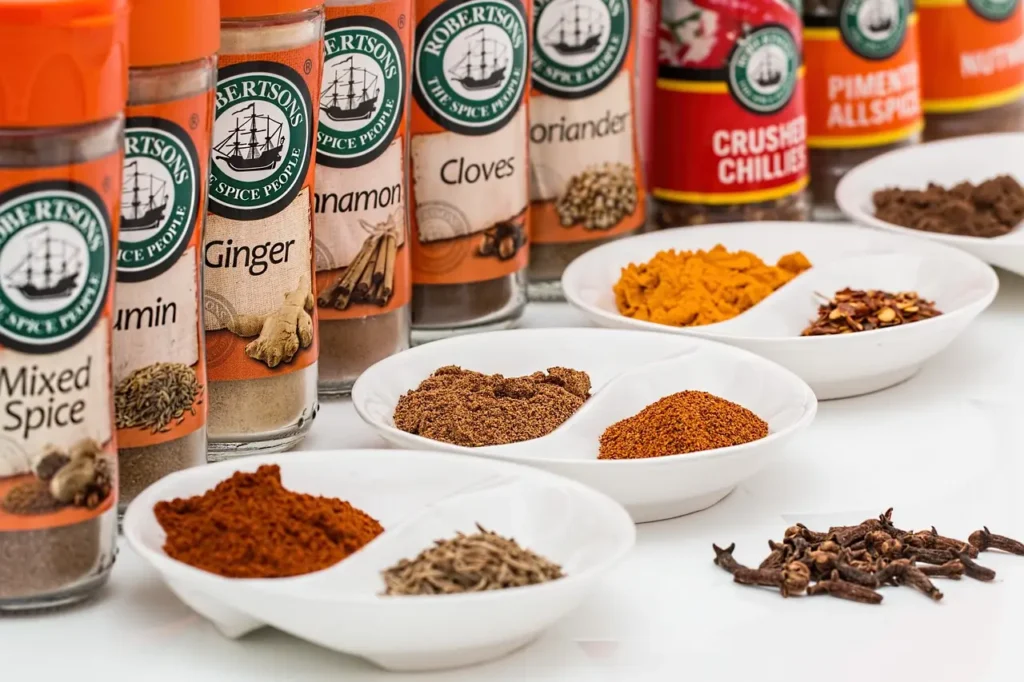
One of the most exciting parts of vegetarian cooking is discovering how to create delicious flavors without relying on meat. Experimenting with herbs, spices, and unique ingredients can turn even the simplest dish into a culinary masterpiece.
Spice Up Your Dishes
Spices and herbs are the secret weapons of cooking tips for beginner vegetarians. They can transform bland vegetables into vibrant, flavorful dishes. Consider these ideas:
- Turmeric & Cumin: Perfect for curries and stews, these spices provide warmth and depth.
- Fresh Herbs: Basil, parsley, and cilantro can brighten salads and sauces.
- Smoked Paprika: Adds a hint of smokiness that mimics grilled flavors in vegetarian dishes.
Use Umami-Rich Ingredients
Umami, often known as the fifth taste, brings a savory quality to your dishes. Mushrooms, nutritional yeast, and tomatoes are excellent sources of umami. Beginner Vegetarian Tips Experiment with these ingredients to add a robust flavor profile to your meals.
Marinating and Infusing Flavors
Marination is not just for meat! (Beginner Vegetarian Tips ) Vegetables, tofu, and tempeh can benefit greatly from a good marinade. Use a mix of soy sauce, garlic, ginger, and a dash of citrus to infuse your ingredients with deep flavor before cooking.
Experiment with Different Cuisines 🍜
Trying out international recipes is a fantastic way to keep your cooking exciting. From Indian curries to Mediterranean salads, each cuisine offers unique flavor combinations that will expand your culinary repertoire.
5. Plan Your Meals for Success
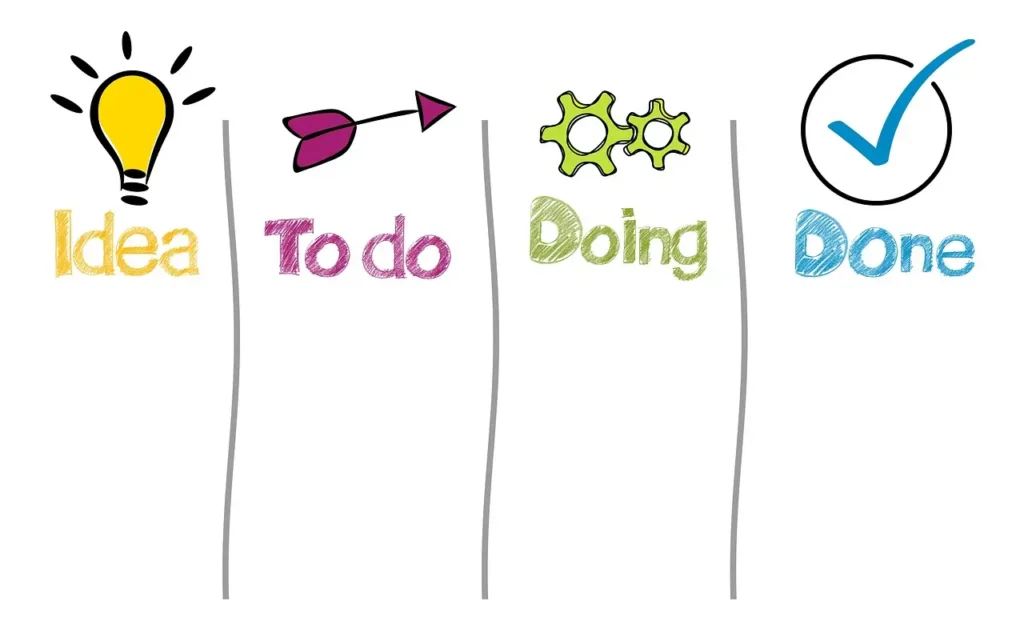
One of the best ways to ensure a stress-free cooking experience is to plan your meals ahead of time. As a beginner, developing a meal plan can help you stay organized, avoid last-minute rushes, and maintain a balanced diet.
Benefits of Meal Planning
- Saves Time: By planning your meals, you reduce the daily stress of deciding what to cook.
- Reduces Waste: A well-planned menu helps you use up your pantry ingredients effectively.
- Keeps You on Track: Planning ensures that you’re consistently consuming balanced meals, which is crucial for nutrition.
Creating a Weekly Menu
Dedicate some time each week to create a menu. (Beginner Vegetarian Tips ) Write down your recipes, list the ingredients needed, and organize your shopping list accordingly. This systematic approach not only saves time but also helps you stick to your Beginner Vegetarian Tips.
Batch Cooking and Meal Prepping
Consider preparing meals in bulk, especially on weekends. Batch cooking allows you to store healthy meals for the busy workdays ahead. Invest in quality storage containers to keep your meals fresh throughout the week.
Stay Flexible
While planning is essential, it’s also important to stay flexible. (Beginner Vegetarian Tips) If you feel like trying something spontaneous, don’t hesitate to swap out a meal. The key is to maintain balance and enjoy the process.
6. Experiment with International Vegetarian Cuisines

Exploring different culinary traditions is a great way to enhance your vegetarian cooking skills. International cuisines offer a vast range of ingredients, spices, and cooking techniques that can inspire your creativity in the kitchen.
Discover New Recipes
From the aromatic spices of Indian cuisine to the fresh flavors of Mediterranean dishes, there is so much to explore:
- Indian Cuisine: Try making a rich vegetable curry or dal. Indian cooking relies heavily on spices like turmeric, cumin, coriander, and garam masala, which add complexity and depth to dishes.
- Mediterranean Cuisine: Enjoy dishes such as hummus, tabbouleh, or a colorful Greek salad. Olive oil, lemon, and fresh herbs are staples here.
- Mexican Cuisine: (Beginner Vegetarian Tips) Savor vegetarian tacos or a hearty bean chili. Experiment with ingredients like black beans, corn, avocado, and lime.
Learning Through Cooking Shows and Online Tutorials 🎥
One of the best ways to get inspired is to watch cooking shows or follow online tutorials that focus on vegetarian recipes. Visual learning can help you understand techniques such as sautéing, steaming, and stir-frying—skills that are essential for any beginner.
Create a Fusion of Flavors
Don’t be afraid to mix and match recipes from different cuisines. Combining elements from various traditions can lead to delightful Beginner Vegetarian Tips new dishes. For example, try adding a Mediterranean twist to a classic Indian dish by incorporating fresh herbs and lemon juice.
7. Invest in Quality Kitchen Tools

Good tools can make a huge difference in your cooking experience. (Beginner Vegetarian Tips) As a beginner, it’s important to invest in high-quality kitchen utensils and appliances that will help you prepare meals with ease.
Must-Have Kitchen Tools for Vegetarian Cooking
- Sharp Knives: A set of quality knives is essential for efficient chopping and slicing. A chef’s knife and a paring knife should be your starting points.
- Cutting Boards: Use separate boards for fruits, vegetables, and other ingredients to maintain hygiene.
- Cooking Pots and Pans: Invest in a versatile non-stick skillet, a deep saucepan, and a stockpot for soups and stews.
- Blender or Food Processor: These appliances are invaluable for preparing smoothies, sauces, and purees.
- Measuring Cups and Spoons: Precision is key in cooking. Having a good set of measuring tools ensures consistency in your recipes.
- Storage Containers: For meal prepping and leftovers, invest in BPA-free, airtight containers that help maintain the freshness of your food.
Organizing Your Kitchen for Efficiency
Arrange your kitchen tools in a way that makes cooking smooth and enjoyable. Beginner Vegetarian Tips Keep your frequently used items within easy reach and organize your drawers and cabinets logically.
Upgrading Over Time
You don’t need to purchase everything at once. Start with the basics and gradually upgrade your tools as your skills improve. Quality tools not only make cooking easier but also encourage you to experiment with more advanced recipes.
8. Stay Inspired with Food Blogs and Cooking Shows

In today’s digital age, inspiration is just a click away. There is a wealth of online resources dedicated to vegetarian cooking that can provide ideas, tips, and detailed tutorials.
Top Resources for Beginner Vegetarian Tips
- Food Blogs: Follow blogs that specialize in vegetarian recipes. They often provide step-by-step instructions, beautiful photographs, and practical advice. Blogs like Minimalist Baker and Oh She Glows are fantastic starting points.
- YouTube Channels: Visual learners can benefit greatly from cooking shows and channels dedicated to vegetarian cuisine. Look for channels that break down techniques and share creative recipes.
- Social Media Groups: Join online communities on platforms like Facebook, Reddit, or Instagram where like-minded individuals share recipes, troubleshooting tips, and culinary inspiration.
Keeping Up with Trends and Seasonal Recipes
Staying updated with the latest trends in vegetarian cooking can be exciting. (Beginner Vegetarian Tips) Many blogs and shows highlight seasonal recipes, which can help you utilize the freshest ingredients available.
Share Your Own Journey
Don’t be afraid to share your experiences on social media or your own blog. Documenting your culinary journey can be incredibly rewarding and might inspire others to follow a vegetarian lifestyle.
9. Socialize and Share Your Journey

One of the greatest joys of cooking is sharing your passion with others. Engaging with fellow vegetarian enthusiasts can lead to valuable exchanges of recipes, tips, and motivation.
Join Vegetarian Communities
Whether it’s online forums or local cooking classes, connecting with other vegetarians can provide moral support and creative inspiration. (Beginner Vegetarian Tips Participate in discussions, share your successes, and learn from the experiences of others.
Host Vegetarian Dinners or Potlucks 🍽️
Organize gatherings with friends or family to showcase your new cooking skills. Beginner Vegetarian Tips Hosting a vegetarian dinner party or potluck is a fantastic way to share delicious food and tips with others who might be interested in adopting a vegetarian lifestyle.
Collaborate and Learn
Consider collaborating with local chefs or food bloggers. This interaction can open doors to new techniques, recipes, and even potential career opportunities in the (Beginner Vegetarian Tips) culinary world.
10. Take it One Step at a Time

Finally, remember that becoming proficient in vegetarian cooking is a journey, not a race. The key to long-term success is gradual progress and consistent practice.
Embrace the Learning Curve
No one becomes a master chef overnight. Start with simple recipes and gradually experiment with more complex dishes as your confidence grows. Celebrate each small victory, whether it’s mastering a new cooking technique or perfecting a flavor balance.
Set Realistic Goals
Establish short-term and long-term goals for your vegetarian cooking journey. Maybe your goal for this month is to try out five new recipes, while your long-term objective could be to host a vegetarian dinner party. Setting clear goals helps you track your progress and keeps you motivated.
Reflect and Adjust
Take time to review your progress periodically. Identify areas where you can improve and adjust your cooking strategies accordingly. Remember, even experienced cooks make mistakes—what matters is learning from them and moving forward.
🍕 How to Make Perfect Pizza Dough Recipe (2025 Edition)
Discover the secrets to making soft, chewy, and flavorful pizza dough right at home! This step-by-step 2025 guide is perfect for beginners and food lovers alike.
🍕 Read the Full Pizza Dough Guide👀 Also check out our latest vegetarian recipes for more delicious ideas!
Frequently Asked Questions (FAQ)
Q2: How can I ensure I get enough iron on a vegetarian diet?
A: Incorporate iron-rich foods such as lentils, spinach, pumpkin seeds, and fortified cereals into your meals. Enhance absorption by pairing them with vitamin C-rich foods like oranges or bell peppers.
Q3: What are some easy vegetarian recipes for beginners?
A: Start with simple dishes like vegetable stir-fries, hearty soups, salads, and pasta dishes. Experiment with international recipes like Indian curries or Mediterranean salads to expand your culinary skills.
Q4: How can I gradually transition to a vegetarian lifestyle?
A: Begin by incorporating more plant-based meals into your diet and slowly phasing out meat. Explore recipes that serve as both nutritious and delicious alternatives, helping you adjust gradually to the new lifestyle.
Q5: What kitchen tools should every beginner vegetarian cook invest in?
A: Essential tools include quality knives, cutting boards, versatile cookware, a blender or food processor, and airtight storage containers. These investments will streamline your cooking process and boost your confidence in the kitchen.
Final Thoughts
Are you ready to take your vegetarian cooking to the next level? Start implementing these Beginner Vegetarian Tips today and discover the joy of creating healthy, flavorful meals every day! We’d love to hear your success stories and creative recipes—share them in the comments below or join our online community for even more inspiration. Happy cooking! 🌱✨
Embarking on a fully vegetarian journey is both an exciting and fulfilling adventure. With the Beginner Vegetarian Tips outlined in this guide, you now have the tools to create a balanced, nutritious, and delicious vegetarian diet that caters to your needs. Remember to embrace the process, learn at your own pace, and always stay inspired by the endless variety of flavors and ingredients available.
Adopting a vegetarian lifestyle not only benefits your health but also contributes to a more sustainable and compassionate world. Every meal you prepare is a step towards a healthier you and a better environment.
Thank you for joining us on this culinary Beginner Vegetarian Tips journey. Stay motivated, keep experimenting, and never stop exploring the vibrant world of vegetarian cooking. For more tips and recipes, subscribe to our blog and join our vibrant community of passionate home cooks. Together, let’s make every meal a celebration of flavor, health, and sustainability!


